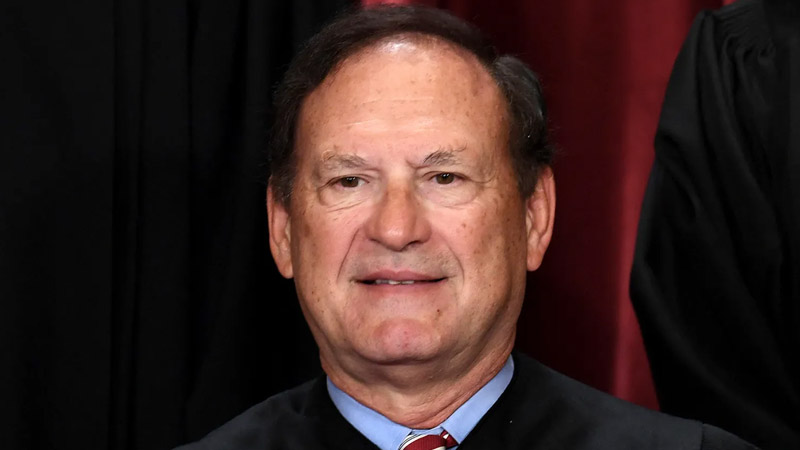“Oh, I was thinking more of just cutting funding for air conditioning” Senate Eyes Constraints on Supreme Court Amid Ethics Concerns

OLIVIER DOULIERY/AFP/GETTY IMAGES
As tensions rise around the ethics and operations of the U.S. Supreme Court, the Senate Judiciary Committee has sparked discussions by suggesting Justices John Roberts and Samuel Alito should clarify their positions amidst ongoing scandals. Legal experts are also proposing measures that Congress could adopt to impose stricter oversight on the Court.
The upcoming fiscal year’s appropriations bill, which includes funding for the federal judiciary, was highlighted by Georgetown University professor Josh Chafetz on X. “Just a reminder that the markup for the FY’25 Financial Services and General Government appropriations bill, which contains the funding for the federal judiciary, is just around the corner!” Chafetz noted, suggesting potential financial levers to press the Supreme Court towards compliance.
In an exchange that followed, lawyer Daniel Schuman considered the prospect of Congress introducing an ethics code via the appropriations bill. Chafetz clarified his thoughts further, “Oh, I was thinking more of just cutting funding for air conditioning, clerks, the building, etc,” emphasizing more direct and immediate impacts.
National security expert Marcy Wheeler proposed slashing the Supreme Court’s funding due to perceived inefficiencies, suggesting, “Congress should cut funding for SCOTUS because they barely work anymore. [Give] the pay incentives for rulings within two months. Just like NFL quarterbacks do.”
Legal analyst Anthony Michael Kris humorously recommended that if the Court remains non-responsive, Congress could “legislatively make justices’ work conditions as miserable as possible.”
This discussion comes in the backdrop of marked differences between the ethics rules governing the lower federal courts and those that apply to the Supreme Court. Bloomberg highlights that lower court codes mandate judges to take action upon receiving reliable information about ethical breaches within the judiciary, a directive that is conspicuously absent from the Supreme Court’s guidelines.
Moreover, the public can file complaints about ethical breaches by lower court judges, but no similar mechanism exists for the Supreme Court. The report underlines the omission of an enforcement mechanism in the Supreme Court’s version, pointing out a stark contrast: lower court judges are urged to “maintain and enforce” high standards of conduct, a mandate not extended to the Supreme Court justices.
As Congress contemplates various measures, from financial cutbacks to legislative adjustments, the debate continues on how to ensure a more accountable and transparent U.S. Supreme Court. The outcome could redefine the intersection of law, ethics, and governance at the highest levels of the American judiciary.


